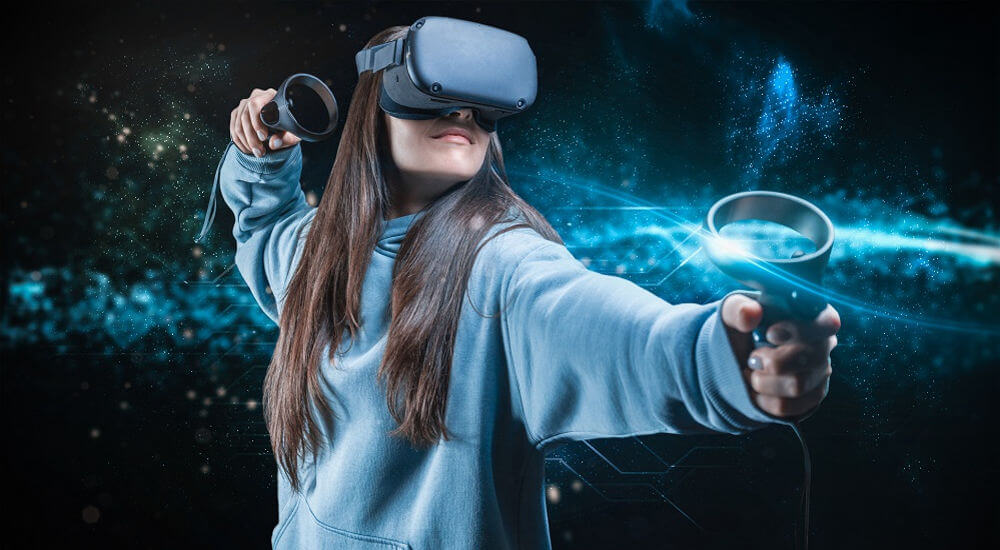Virtual Reality (VR) is no longer just a concept confined to the realms of science fiction. It has made its way into our daily lives, primarily through the gaming industry, but its potential far exceeds the world of entertainment. As technology advances at an unprecedented rate, VR is gradually reshaping various aspects of our lives, extending its influence into domains such as education, healthcare, business, and social interaction.
In the early days, VR was often associated with gaming. Gamers embraced VR technology to immerse themselves in digital worlds, making their gaming experiences more thrilling and lifelike. However, the potential of VR extends far beyond gaming, and its applications are set to revolutionize a multitude of sectors.
In the field of education, VR is transforming the way students learn. It offers immersive and interactive experiences, enabling students to travel back in time, visit distant locations, and engage in scenarios that were previously inaccessible. Medical students can now practice complex surgeries in a risk-free virtual environment, while history students can witness historical events as if they were present. VR’s educational potential is boundless, promising a more effective and captivating learning experience.
In healthcare, VR is making a significant impact. From pain management to rehabilitation, virtual reality therapies are producing remarkable results. Patients can escape the confines of hospital rooms by immersing themselves in calming and distracting environments, potentially leading to quicker recoveries. Furthermore, VR is increasingly used in exposure therapy to treat phobias and post-traumatic stress disorders, offering new hope for individuals in need of mental health treatment.
The global shift toward remote work, accelerated by the COVID-19 pandemic, has opened new doors for VR. Virtual offices and meeting spaces allow employees to collaborate seamlessly, even when they are physically separated by great distances. Immersive VR meetings can foster stronger connections among team members and make remote work more engaging. As a result, VR is poised to transform the future of work by providing a more interactive and engaging remote work environment.
In architecture and design, VR is enabling architects and designers to step into their projects, enhancing their understanding of spatial relationships and aesthetics. Clients can experience virtual walkthroughs of properties before they are built, reducing errors and streamlining the design process. As a result, VR is becoming an indispensable tool for the construction and real estate industries.
VR is also redefining how we interact with others in the digital realm. Social VR platforms are emerging, offering people the opportunity to meet in virtual spaces and engage in a variety of activities together. These interactions go beyond conventional text-based chats or video calls; users can see and interact with each other’s avatars, making online socializing more immersive and engaging.
Moreover, VR has the potential to transform the tourism and exploration industries. It can transport users to destinations they might never have the opportunity to visit in person. Through VR, users can explore historical sites, natural wonders, and even other planets. This technology opens up new possibilities for the tourism industry, allowing prospective travelers to experience destinations before making a decision. Additionally, it serves as an educational tool, providing an interactive means to learn about various cultures and ecosystems.
In conclusion, while gaming will always have a significant place in the world of virtual reality, the technology’s potential goes far beyond entertainment. VR is already making a substantial impact in education, healthcare, remote work, design, social interaction, and tourism. As technology continues to advance and VR becomes more accessible, its role in transforming these industries will only continue to expand. The future of virtual reality promises a more immersive, interconnected, and engaging world for us all.








